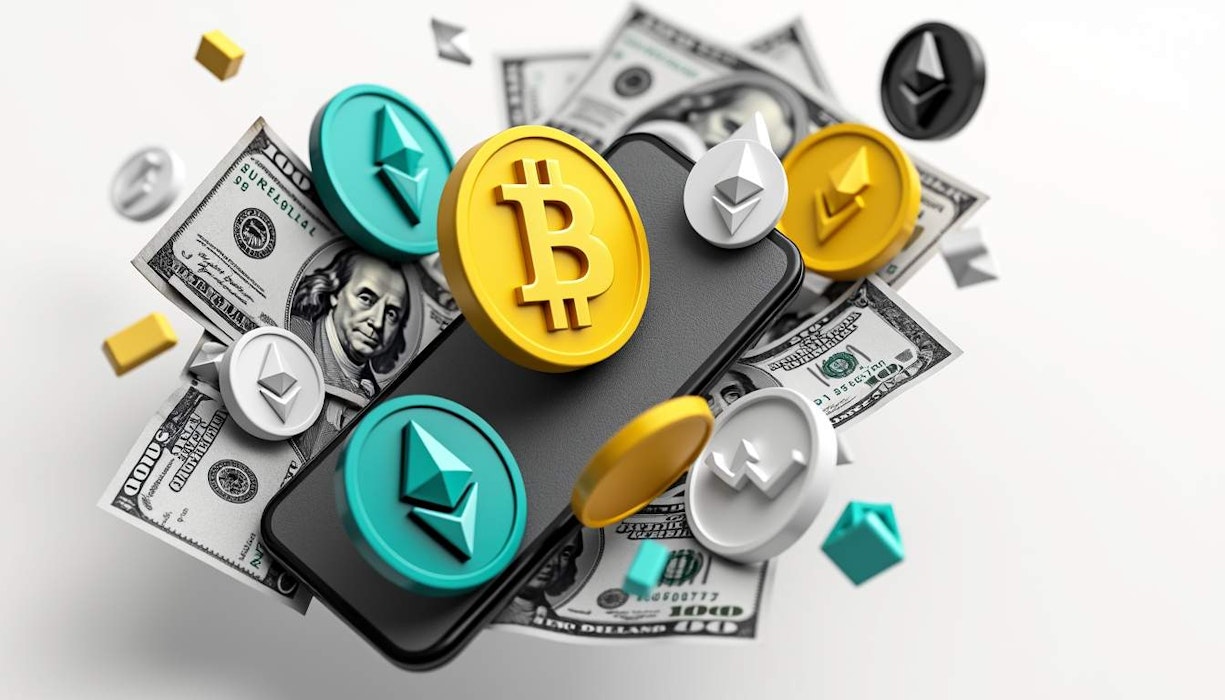Let’s talk about PayPal and its cryptocurrency journey. Here’s a fair breakdown of what’s going on if you’re thinking about using their services.
What are they offering?
PayPal has finally jumped into the cryptocurrency waters, letting you do some buying, selling, and holding of popular coins like Bitcoin, Ethereum, and others, all through your account. They even have their own stablecoin, PayPal USD. You can find the crypto features easily on their app, which makes it a pretty accessible platform to buy cryptocurrency.
How does it work?
To get started, all you need to do is head over to the "Crypto" section in the PayPal app. You just choose how much of the cryptocurrency you want to purchase, and bam, it’s done. You can then use these cryptocurrencies for eligible purchases at millions of online stores worldwide.
What about the fees?
Let’s be real, there are always fees.
What should you know?
-
Transaction Fees: No fees for buying or selling PayPal USD, but watch out! Converting between cryptocurrencies incurs a marked-up exchange rate.
-
Funding Fees: If you use your bank account, debit card, or credit card to buy, your bank could charge you, and PayPal won't cover those fees.
-
International Transaction Fees: If you are doing anything that involves currency conversion, PayPal gets you with a 5% base fee, plus additional fees that can add up.
-
Fixed Fees: Fees vary depending on the amount, with rates anywhere from 1.50% to 2.30%, plus fixed fees for smaller amounts. Definitely something to factor in.
What's the catch with decentralized platforms?
Now let’s talk about how PayPal’s offering stacks up against decentralized platforms.
What’s the deal?
-
Centralization vs. Decentralization: PayPal is centralized, so they can control your account. Decentralized platforms let you keep your private keys and operate without middlemen.
-
Flexibility and Autonomy: Decentralized platforms let you send and receive assets directly to and from external blockchain addresses. PayPal only allows internal transfers.
-
Anonymity and Privacy: Decentralized platforms offer more anonymity. With PayPal, you need to provide lots of personal info.
-
Accessibility and Inclusion: Decentralized cryptocurrencies can be accessed by anyone with internet. PayPal still ties back to traditional banking.
-
Security and Trust: Decentralized platforms are built on blockchain, while PayPal operates within a centralized structure.
Security measures you should consider
Security is key, especially when using PayPal for crypto.
What should you do?
-
Protection Against Unauthorized Activity: PayPal doesn’t offer Buyer Protection for crypto, but they do protect against unauthorized transactions.
-
Secure Funding Sources: You can only use your PayPal balance, bank, or debit card to buy crypto. Credit cards and PayPal Credit are not allowed.
-
Risk Assessment for Transactions: They are working on tech to assess transaction risks before execution.
-
Encryption and Secure Connections: PayPal uses TLS and HTTPS to secure connections.
-
Password and Authentication Security: Strong passwords and two-factor authentication are a must.
-
Monitoring for Spoof Sites: Watch out for spoof sites and report them.
A tool for remote freelancers?
For those working remotely, PayPal’s service could be a lifesaver, but with some catches.
What are the pros?
-
Speed and Efficiency: Crypto transactions are often faster than traditional banking.
-
Global Reach: Simplifies the process for freelancers receiving payments from international clients.
-
Lower Fees for Some Transactions: Cryptocurrencies can have lower transaction fees compared to traditional methods.
-
Security and Protection: PayPal offers fraud protection.
What are the considerations?
-
Volatility and Risk: Cryptos can be super volatile.
-
Transaction Fees: PayPal’s services come with fees, especially for buying, selling, and transferring crypto.
-
Regulatory and Security Concerns: Watch for regulatory changes and ensure good wallet setups and authentication methods.
In Short
PayPal’s venture into cryptocurrency services is intriguing but not without its challenges. Make sure to do your homework and understand the risks involved if you decide to give it a shot.
